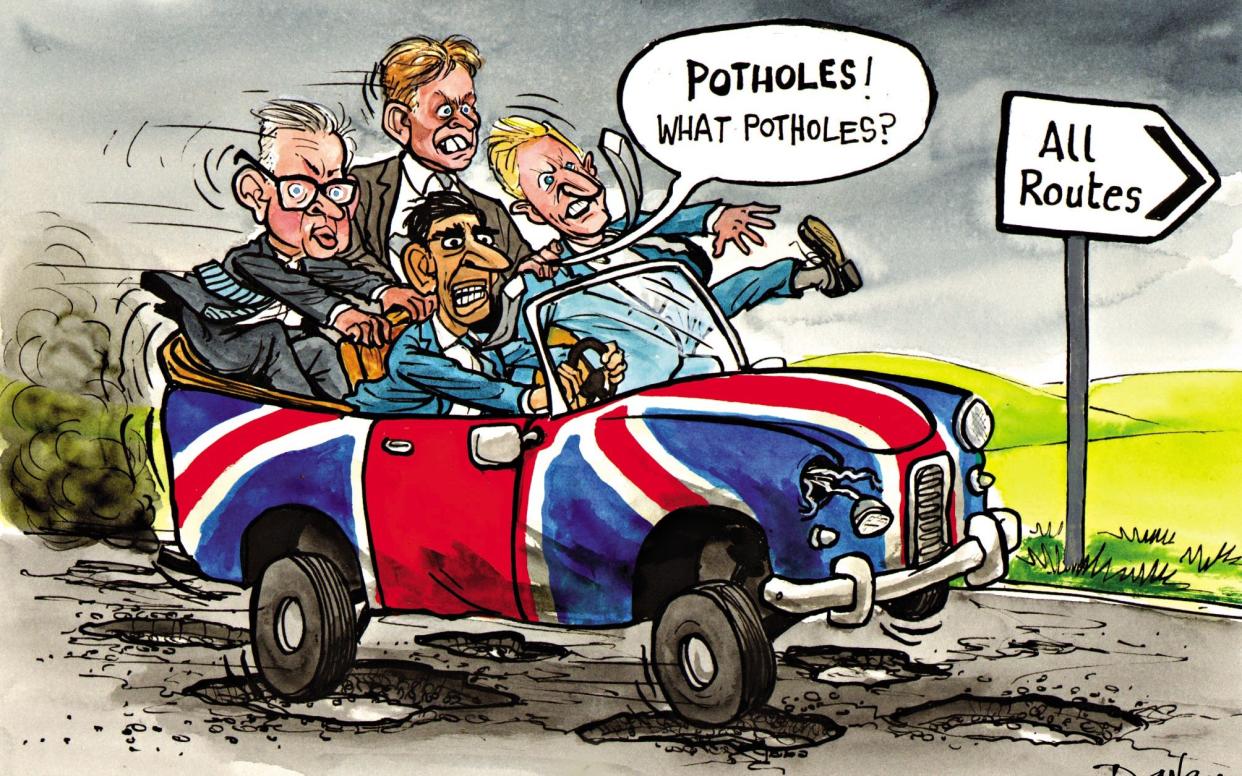Potholes are now a danger to society itself

Potholes, according to Lancashire County Council, are a mere “fact of life” – or what in a more religious age might have been described as an act of God.
Those were the words that were used in a letter to 23 year old Rebecca Salisbury who was seeking compensation – just £100, she wanted to claim – after breaking her ankle after tripping when her foot got caught in a pothole in Preston. In other words: broken road surfaces are nothing to do with us; you’re on your own, chum.
And there were many of us who were thinking that the reason that Britain roads have so many potholes is that councils have neglected their duty to maintain them, preferring to spend our money on more exciting projects like zero emission dustcarts and decolonising public spaces – and indeed on their own chief executives’ pay and pensions.
According to the latest edition of the Town Hall Rich List published by the TaxPayers’ Alliance at least 3106 council officials in Britain are paid more than £100,000, up by 347 on the previous year. 829 were paid more than £150,000, up 108 on the previous year. That is an awful lot of tarmac which could be purchased with those pay rises.
But no, I am grateful to Lancashire council for putting us right and revealing that no, in fact potholes are simply destined to be there and there is absolutely nothing a council can do to repair them or even to prevent them forming in the first place.
There is, however, still one niggling little question eating away at me. If potholes really are just a fact of life why do there seem to be so many more of them on Britain’s roads compared with other developed countries? Is it just that we have the wrong kind of weather, wrong kind of vehicles or what?
The most astonishing thing is that the roads are in such a poor condition in spite of a £2.5 billion “potholes fund” which was announced by Rishi Sunak in his first budget in 2020 and which has been shelled out at a rate of £500 million every year since.
True, that has to cover an awful lot of road, but even so. There are an estimated 247,500 miles of road in Britain, which means that for the past four years councils have been receiving around £2000 per mile of road per year.
At last year’s Tory conference, Sunak announced a further £8 billion fund to fix potholes.
Surely that ought to be more than enough to make a serious impact on the condition of the country’s roads. So what has happened to the money? How much does it cost to send a gang out on a lorry with spades and a pile of tarmac, for God’s sake?
Then again, when you start reading Lancashire County Council’s “Highways Decarbonisation Strategy” you start to realise why so much money ends up producing so few useful results. Every lorry-load of tarmac used in the county, it states, must now be run through a “low carbon materials calculator”, while all work must be subject to “carbon offset solutions”. By 2035 all vehicles used repairing Lancashire’s roads must be zero carbon, along with all portakabins.
This is how so much public money disappears now – on net zero initiatives. It gets spent on well-meaning officials drawing up decarbonisation plans, while the public is abandoned to come to grief on unfilled potholes.
